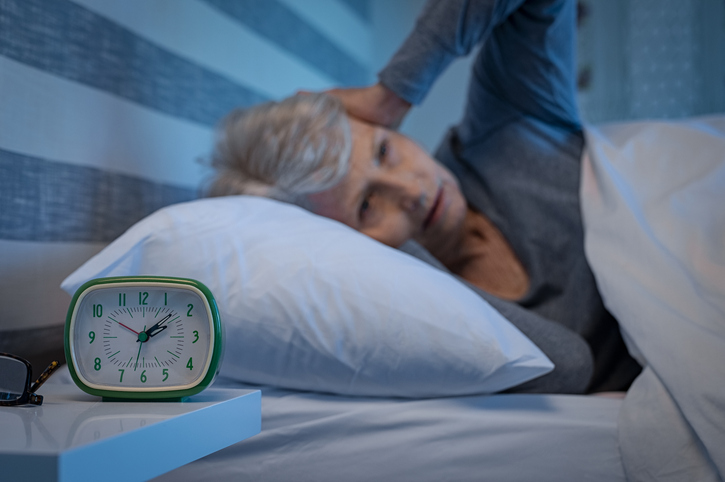
Overcome senior insomnia with the tips provided here.
Tossing and turning. Counting sheep. Staring at the clock. If this sounds like a regular evening for your senior loved one, understand that he or she is in good company. While seniors need to have at least 7 hours of sleep each night, as many as 50 percent of all seniors over age 65 report complaints with falling and/or remaining asleep. Yet it’s significant to be aware that despite the fact that senior sleep problems may be common, they are not a normal part of the aging process – and there are measures that can be taken to improve sleep for your senior loved ones.
First, it’s necessary to rule out a clinical sleep disorder, which might include effects that happen regularly such as:
- Problems with falling asleep, even when tired
- Difficulty with falling back to sleep once awakened
- Sleepiness or irritation during waking hours
- Concentration or focus challenges, or falling asleep when sitting still (such as when watching TV or riding in a car)
- Uncontrollable emotions
- Reliance on alcohol or sleeping pills to obtain needed sleep
The doctor should be contacted if a sleep disorder is suspected. For many older adults, however, there’s an underlying cause behind the insomnia. Some of the common causes of senior sleep difficulties are outlined below, including guidelines to help:
- An environment that’s detrimental to sleeping. Ensure the bedroom is dark, quiet, and cool. Remove the television set and any electronics from the bedroom, and stick to a regular sleep routine that begins with soothing music, a warm bath, reading, or any other calming activities, in addition to a set time to go to bed each night.
- Medication side effects. Assess any drugs your loved one is taking – both prescription and over-the-counter – to see whether sleep disruptions might occur, and then talk with the senior’s doctor about whether any medication adjustments should be considered.
- A sedentary lifestyle. Staying as active as possible during the day can make a big difference in the senior’s ability to sleep better at night. Encourage your senior loved one to register for an exercise class, take a walk each morning, or join a local pool and make an effort to swim each day (all with the doctor’s approval).
- Chronic disease complications. Medical conditions such as dementia, diabetes, osteoporosis, and more can lead to senior sleep disruptions. Check in with the senior’s doctor for recommendations.
- Post-menopause. It’s common knowledge that the hot flashes often experienced through menopause can hinder sleep, but hormone-related sleep issues can continue after menopause as well. The lifestyle changes mentioned above might help.
The Holderness home care experts at Live Free Home Health Care can assist with senior sleep issues in a variety of ways as well. Contact us at 603-217-0149 to arrange a free in-home assessment to learn more! And visit our Service Area page to find out if our specialized home care services for seniors are available in your area.
